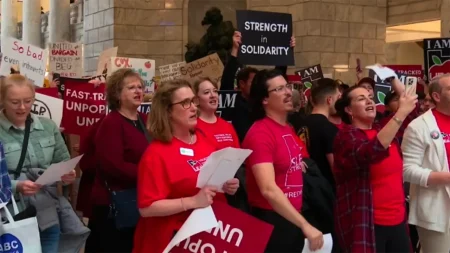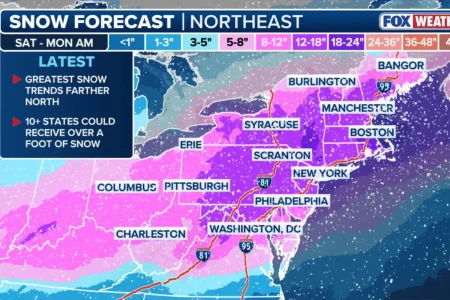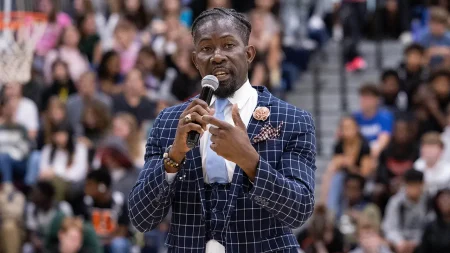On the Controversy Surrounding Usha Vance’s Religious Choices
A recent controversy has emerged regarding comments made about Usha Vance, the wife of vice presidential candidate J.D. Vance. These comments have sparked criticism from various quarters, particularly from members of the Indian American community. The critics have expressed concern that the remarks failed to show proper respect for Usha Vance’s personal religious journey and choices. As someone who grew up in a Hindu household, Usha Vance’s spiritual path and religious decisions are deeply personal, and many feel these aspects of her life should be treated with sensitivity and understanding.
Religious conversion and spiritual exploration are deeply personal experiences that many individuals navigate throughout their lives. For those with immigrant backgrounds like Usha Vance, these journeys often involve complex negotiations between cultural heritage, family traditions, and personal beliefs. The criticism highlights an important principle: regardless of political affiliations, an individual’s religious choices deserve respect and should not become targets for political commentary or judgment. Many Indian Americans have pointed out that respecting religious diversity and personal choice is a fundamental value that transcends partisan politics.
The backlash to these comments reflects broader concerns within diverse communities about how personal aspects of multicultural identities are sometimes weaponized or misunderstood in political discourse. For many Indian Americans, regardless of their own religious affiliations, there exists a shared understanding about the complexity of navigating multiple cultural and religious influences. This controversy has opened up important conversations about cultural sensitivity, religious freedom, and the boundaries of political discourse in a pluralistic society where many citizens maintain connections to multiple religious and cultural traditions.
This incident also highlights the increasing visibility and influence of Indian Americans in American politics and public life. As one of the fastest-growing immigrant groups in the United States, Indian Americans represent diverse religious backgrounds including Hinduism, Islam, Sikhism, Christianity, and others. The community’s response to this controversy demonstrates their active engagement in ensuring that public discourse respects the nuances of their varied identities and experiences. Many have emphasized that supporting religious freedom means respecting not just the right to practice one’s birth religion but also the right to explore and adopt different spiritual paths.
At its core, this controversy touches on fundamental American values regarding religious liberty and personal choice. Critics of the remarks have emphasized that in a country founded on principles of religious freedom, an individual’s spiritual journey should be respected rather than scrutinized for political purposes. This perspective transcends party lines, with many noting that respecting diverse religious paths is essential to maintaining the pluralistic fabric of American society. The discussion has prompted many to reflect on how public figures with multicultural backgrounds navigate their identities in the political spotlight.
As American society continues to grow more diverse, learning to discuss cultural and religious differences with sensitivity becomes increasingly important. This controversy serves as a reminder that behind political figures are real people with complex identities and personal journeys. Many observers have noted that moving forward, greater awareness of and respect for the religious and cultural choices of individuals from diverse backgrounds will be essential for healthy public discourse. The Indian American community’s response highlights their role not just as voters but as active participants in shaping conversations about representation, respect, and religious freedom in American public life.






